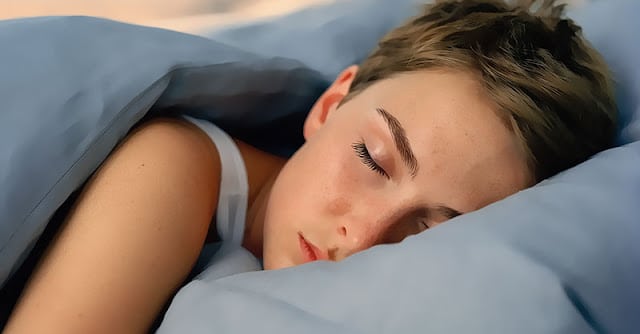According to the Centers for Disease Control and Prevention, over a third of all adults in the U.S. don’t get enough sleep. And this is a serious problem.
A woman needs about 20 minutes more shut-eye than the average amount of sleep needed. If you are a woman, sleep deprivation can cause serious problems with your health.
How Much Sleep Do You Need?
Research shows that gender plays an important role when it comes to determining how much sleep is needed by your body. This battle is hands down won by women.
Not getting enough sleep causes a builds up known as sleep debt, the sleep you owe your body and accumulates over time with quite serious consequences.
It is recommended by the National Sleep Foundation that teenagers need around 9 to 10 hours of sleep a day while school-aged kids and pre-schoolers need even more. Young adults and adults aged 26 to 64 years must get between 7 and 9 hours of sleep a day. The average older adult (over 64 years) needs to get between 7 and 8 hours of sleep a day.
Inadequate Sleep more Dangerous For Women
According to research, having poor sleep causes the following issues:
- Increases risk of type 2 diabetes
- Psychological distress
- Raises risk of heart disease
Due to the higher testosterone levels of men, they are less vulnerable to these health issues as it results to higher insulin sensitivity, lower BMI, and lower levels of inflammatory marker C-reactive protein (CRP).
Reasons Why Women Need More Sleep Than Men?
Pregnancy
A pregnant woman experiences physical and emotional changes which can cause disturbed sleep. She also needs to pee more often and experiences leg cramps which make a good night’s sleep feel like a distant dream.
Exerted More Mental Energy
Women use more of their brains and also multitask more. Due to this additional mental energy exerted by them, the National Sleep Foundation recommends that there is really a need for additional sleep.
Menopause
Poor sleep quality may be linked to menopause, perimenopause, and postmenopausal stages. Some even experience night sweat or hot flashes, thus making them restless at night.
Secondary Insomnia Triggers
There are certain ailments or disorder that makes a woman likely to develop insomnia. Common in women is anxiety, depression, or fibromyalgia.
Polycystic Ovarian Syndrome (PCOS)
Women are more susceptible to disturbed sleep apnea if they have PCOS. Sleep apnea is a condition wherein the upper airways get blocked causing you to start and stop breathing through the night. As a result, you may snore and may experience disturbed sleep.
Menstrual Cycle
According to reports, women with premenstrual syndrome have non-restorative sleep. Some of them experience mood swings, food cravings, abdomen cramps, and discomfort, thus making them have poor sleep quality, frequent awakenings, and insomnia.
Poorer Sleep
Most women do not get good quality of sleep. This can be due to certain life stages and physiological changes. During adulthood, women are said to be more prone to insomnia and poor sleep.
How To Ensure You Get Adequate Sleep
The National Sleep Foundation suggests the following tips for you to help get enough sleep.
- Avoid drinking alcohol or caffeine.
- Have a cup of milk or a warm bath to ease gently into sleep.
- Have a fixed bedtime schedule and stick to it even on weekends and holidays.
- Switch off your electronic devices so that you are not tempted to check messages, app alerts, or emails.
- Have comfortable bed linen and mattress as well as a good pillow.
- See it that your bedroom is dimly lit at night and the temperature is comfortable for you to nod off.
- Get in some exercise every day.









